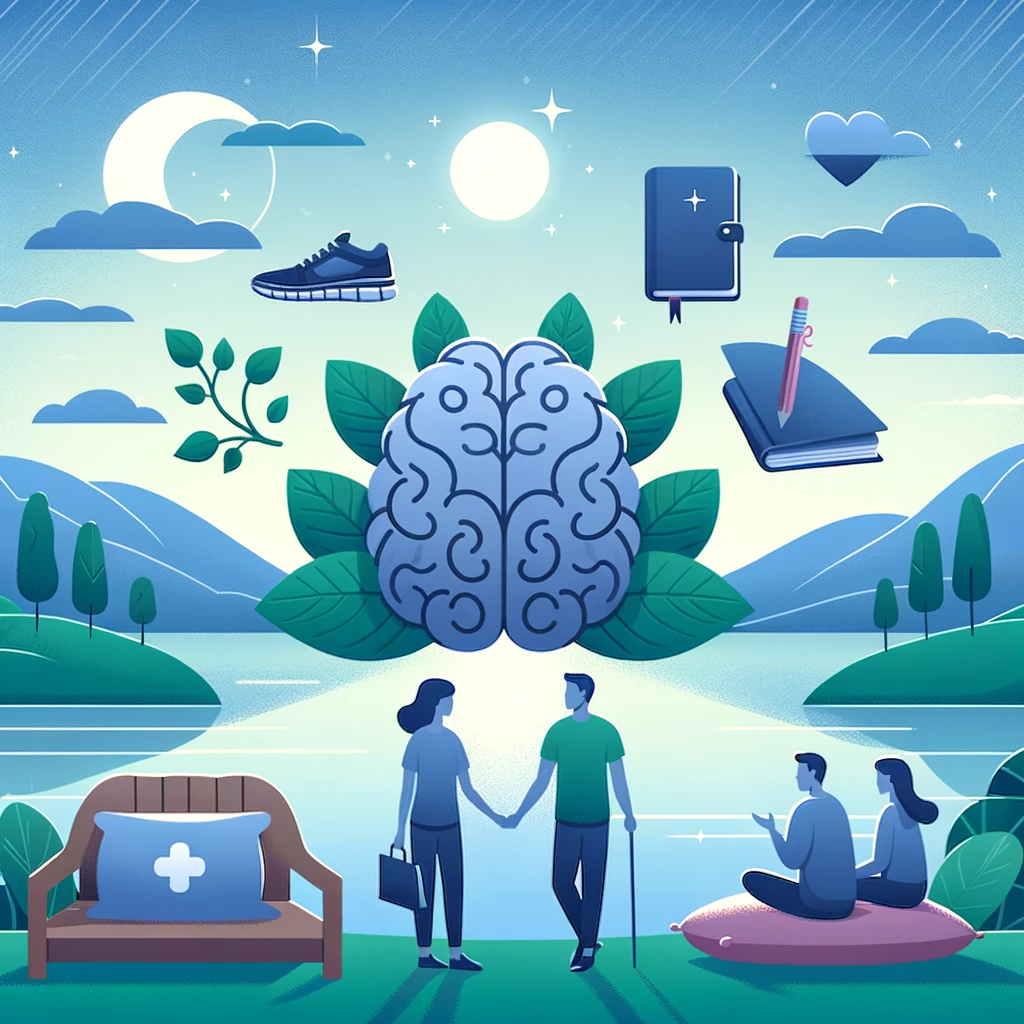5 tips to improve mental health and well-being

February 23, 2024
Mental health and well-being are two fundamental aspects of our lives that can be improved through simple daily actions. In this article we will explore five steps you can take to foster greater positivity and fully appreciate life. By following these tips, you can develop stronger relationships, be more physically active, learn new skills, give back to others, and pay more attention to the present moment.
1. Connect with others
Relational connections are critical to mental well-being. They can help you build a sense of belonging and self-esteem by providing opportunities to share positive experiences, provide emotional support and receive it in turn. Here are some activities you can try to strengthen and bring your relationships closer together:
-
Set aside time each day for your family, such as by arranging a regular time to have dinner together.
-
Plan an outing with friends you haven’t seen in a long time.
-
Turn off the TV to talk or play with your children, friends or relatives.
-
Have lunch with a colleague.
-
Visit a friend or family member who needs support or company.
-
Volunteer at a local school, hospital or community group. You can find information on how to volunteer at GOV.UK.
-
Take advantage of technology to stay in touch with friends and family. Video chat apps such as Skype and FaceTime are useful, especially if you live far away.
Don’t just rely on technology or social media to build relationships. It is easy to get used to communicating only through text messages or email. Try to maintain more direct and personal communication with people you care about.
2. Be physically active
Physical activity not only improves your health and fitness, it also has a positive impact on your mental health. It can boost self-esteem, help you achieve personal goals and challenges, and cause chemical changes in the brain that positively affect your mood. Here are some guidelines on exercise and workouts that can contribute to your physical and mental well-being:
-
Read about aerobic training and running to get you started and improve your fitness.
-
Learn about strength and flexibility exercises to increase your muscle mass, improve balance, and reduce joint pain.
-
If you are a wheelchair user, read exercise tips for people with disabilities.
-
Don’t feel obligated to spend hours in the gym. It is better to find activities you enjoy and make them an integral part of your life.
3. Acquire new skills
Research shows that learning new skills can improve your mental well-being. It can boost your confidence, provide you with a sense of purpose, and help you connect with others. Even if you think you don’t have enough time or need to learn new things, there are many different ways to introduce learning into your life. Here are some suggestions:
-
Try learning how to cook something new. Informing yourself about a healthy, balanced diet can be a good place to start.
-
Take on a new responsibility at work, such as becoming a mentor to a younger colleague or improving your presentation skills.
-
Work on a do-it-yourself project, such as fixing a broken bicycle, a garden gate, or something bigger. There are many free video tutorials available online.
-
Consider enrolling in a course at a local college. You might try learning a new language or a practical skill such as tiling.
-
Experiment with new hobbies that challenge you, such as writing a blog, playing a different sport, or learning to paint.
Don’t feel obligated to get new qualifications or take exams if you don’t care. It is better to find activities you enjoy and make them an integral part of your life.
4. Give to others
Research suggests that performing acts of kindness and giving to others can improve your mental well-being. These actions can create positive feelings, a sense of gratification and self-esteem, and help you connect with others. Here are some examples of things you can do:
-
Thank someone for something they have done for you.
-
Ask friends, family members or colleagues how they are doing and listen carefully to their answers.
-
Spend time with friends or relatives who need support or companionship.
-
Offer to help someone you know with a do-it-yourself or work project.
-
Volunteer in your community, such as helping at a school, hospital, or nursing home.
5. Pay attention to the present moment (mindfulness)
Paying more attention to the present moment can improve your mental well-being. This includes your thoughts and feelings, your body and the world around you. Some people call this mindfulness “mindfulness.” It can help you enjoy life more and understand yourself better, bringing about a positive change in the way you deal with challenges. You can deepen your practice of mindfulness and follow some steps to be more mindful in your daily life.









